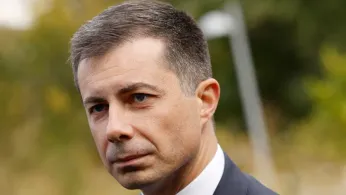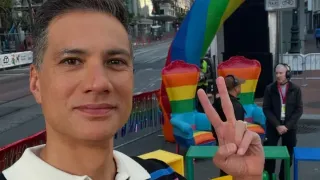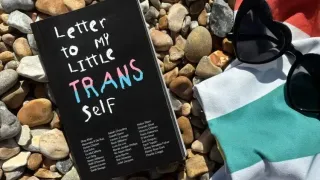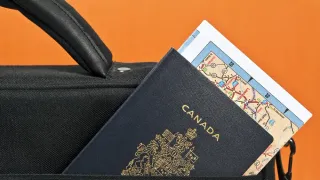
4 hours ago
Pete Buttigieg Condemns Calls to Remove "T" From "LGBTQ+" - "It's Terrible"
READ TIME: 3 MIN.
Pete Buttigieg, former U.S. Secretary of Transportation and a prominent advocate for LGBTQ+ rights, has openly denounced emerging efforts by some activists and commentators to remove the “T” — representing transgender individuals — from the LGBTQ+ acronym. In a recent interview, Buttigieg described these moves as “terrible,” reiterating the necessity of unity and inclusion across the entire spectrum of queer identities .
His comments respond directly to public debates and online campaigns that have questioned whether transgender concerns should remain linked to broader lesbian, gay, and bisexual advocacy. Buttigieg’s intervention signals the high stakes and emotional resonance of the debate for both community members and political leaders .
The LGBTQ+ acronym, first popularized in the late 20th century, was designed to ensure representation for multiple marginalized sexual and gender identities. The inclusion of “T” for transgender people was an explicit acknowledgment of the distinct but interconnected struggles faced by transgender individuals within the broader movement .
However, recent years have seen rising tensions. Some factions within the LGBTQ+ community have argued for a separation of transgender advocacy from lesbian, gay, and bisexual issues, citing differences in priorities or approaches . Critics of this push highlight that attempts to exclude transgender people serve only to weaken the collective power of queer activism and reinforce the marginalization of an already vulnerable group .
In his public statement, Buttigieg emphasized that any attempt to remove the “T” from LGBTQ+ is antithetical to the founding principles of the movement. “It’s terrible,” he said, “because our strength has always been in our unity. The attacks on transgender people are attacks on all of us. We cannot allow ourselves to be divided” .
Buttigieg’s advocacy on this point is consistent with his broader record. As a public official and during his presidential campaign, he has repeatedly called for full equality and legal protection for all LGBTQ+ people, including transgender individuals . His recent remarks underscore the political and moral imperative to resist efforts at exclusion, especially in the face of policy rollbacks and rising anti-transgender rhetoric in parts of the United States .
Advocates and organizations have echoed Buttigieg’s call for solidarity. The Human Rights Campaign released a statement affirming, “Transgender people are an essential part of our community. Any movement that seeks to divide us only serves those who wish to undermine our rights” . GLAAD and other advocacy groups have similarly condemned exclusionary rhetoric, emphasizing that unity is critical for effective resistance to discrimination and violence .
Transgender leaders within the community have expressed both gratitude for Buttigieg’s support and concern over the persistence of exclusionary movements. “It’s heartening to see allies like Secretary Buttigieg standing up,” said Raquel Willis, a noted transgender activist, in a recent panel discussion. “But the fact that we’re still fighting for a seat at the table shows how much work remains to be done” .
The debate over the inclusion of transgender people in LGBTQ+ advocacy comes at a time of heightened legislative attacks on transgender rights across the United States. In 2025 alone, dozens of states have proposed or passed bills limiting transgender people’s access to healthcare, sports participation, and public accommodations .
Activists warn that internal divisions in the LGBTQ+ movement could embolden opponents of equality. “History shows that when we are divided, we lose ground,” said Sarah McBride, a state senator and LGBTQ+ advocate, in an interview with The New York Times . “Solidarity isn’t just a slogan — it’s a survival strategy.”
In response to these challenges, organizations across the country are redoubling efforts to foster education and inclusion. Pride events, community centers, and social media campaigns are placing renewed emphasis on transgender visibility and leadership . Schools and workplaces are being encouraged to adopt policies that explicitly protect gender identity, reflecting the evolving understanding of what true inclusion requires .
Buttigieg’s condemnation of efforts to exclude transgender people is a timely reminder of the stakes involved in the ongoing struggle for LGBTQ+ equality. As debates continue, the message from leaders, advocates, and community members remains clear: Inclusion is not optional, and the fight for justice must encompass every letter of the LGBTQ+ acronym .






